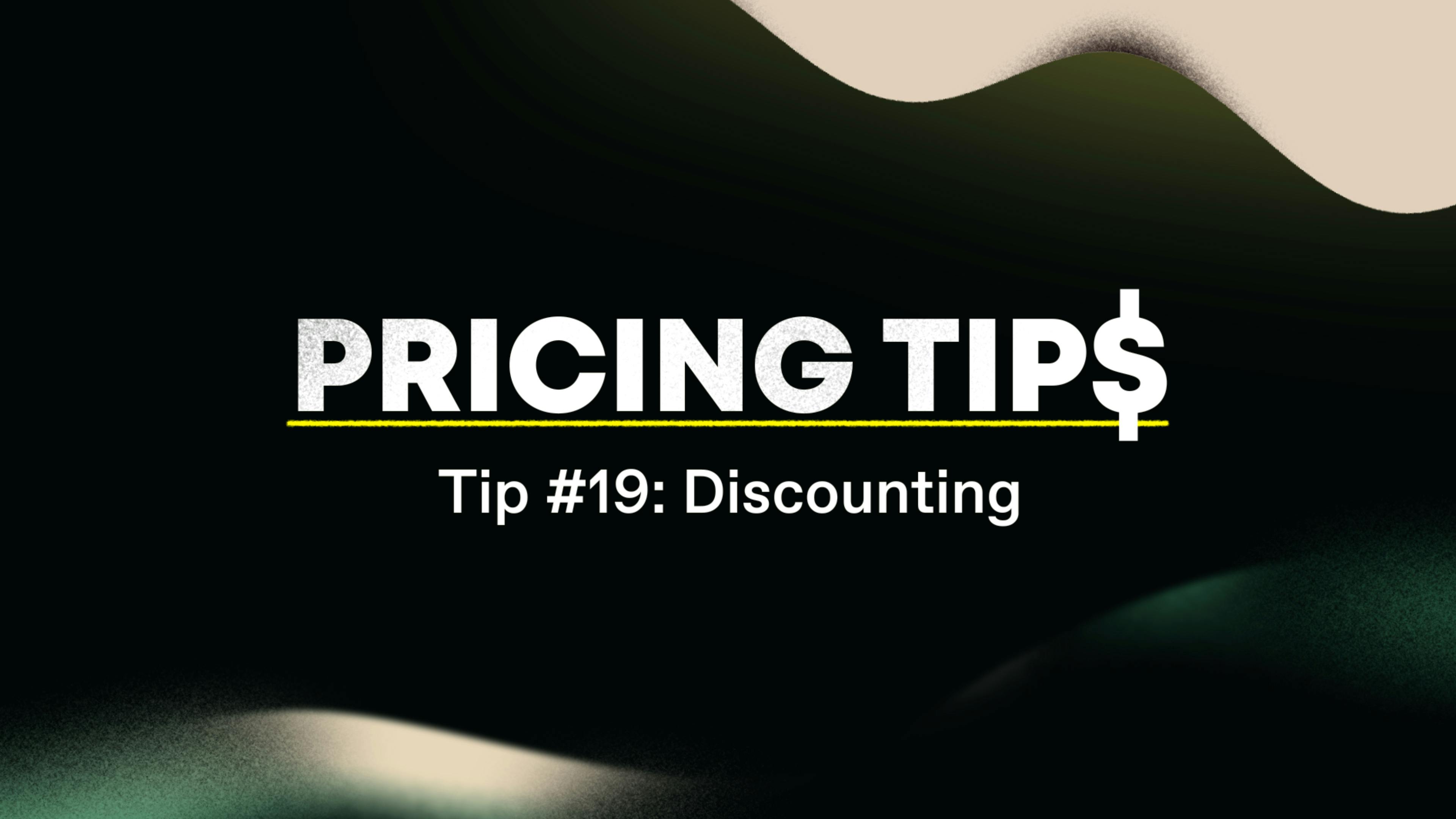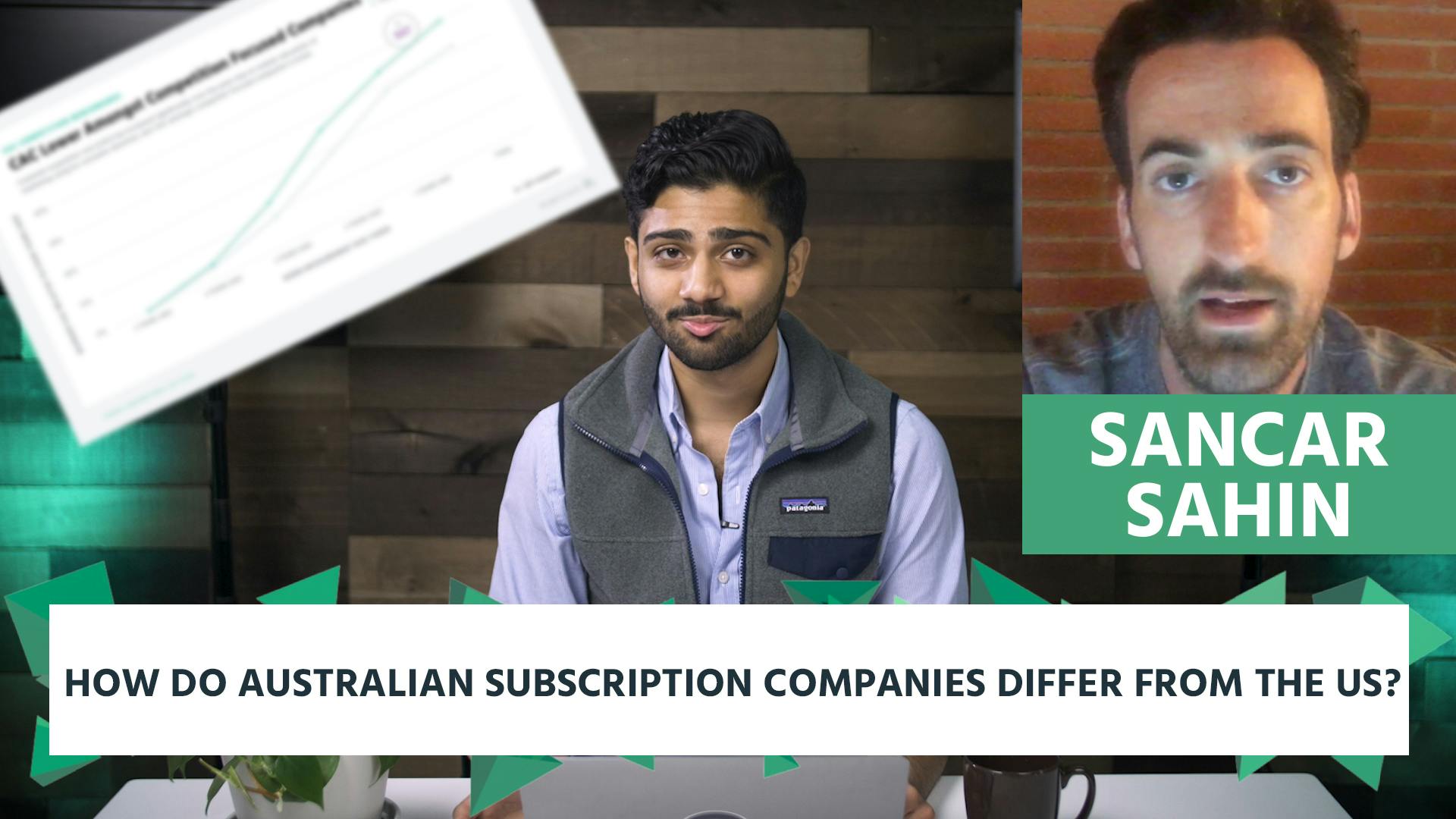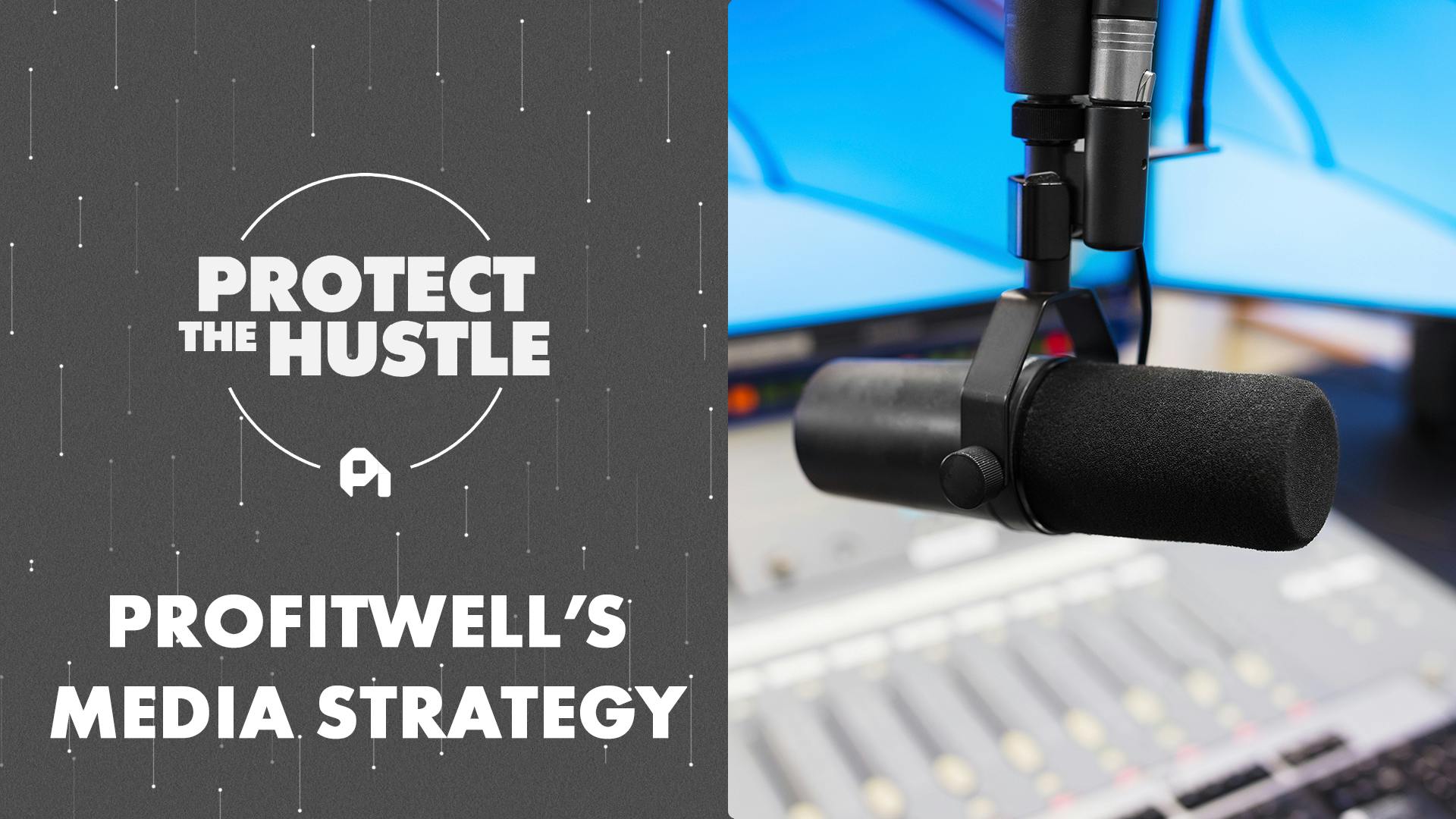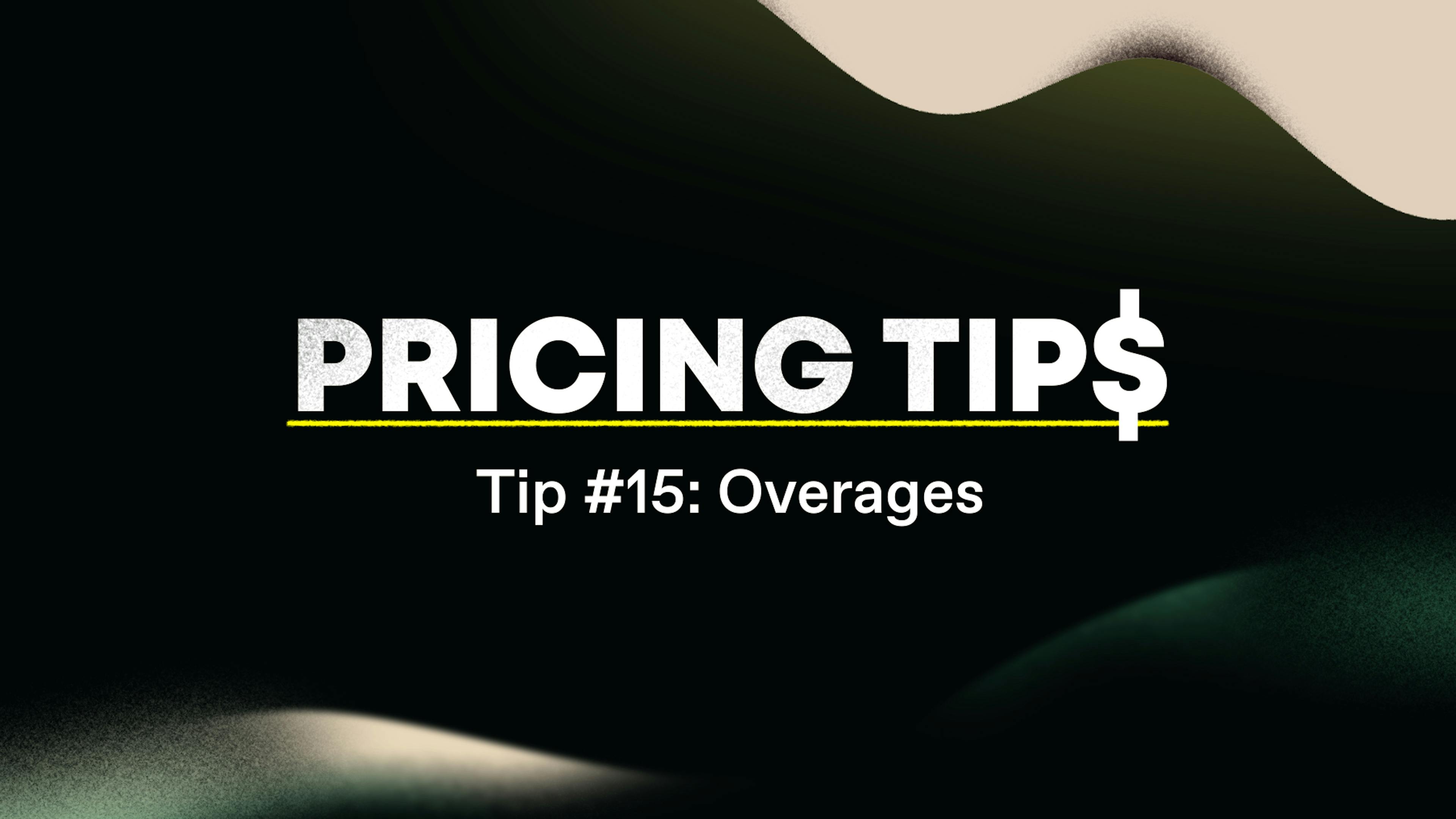
Does Bouqs’ retention deliver?
This episode might reference ProfitWell and ProfitWell Recur, which following the acquisition by Paddle is now Paddle Studios. Some information may be out of date.
Please message us at studios@paddle.com if you have any questions or comments!
Today we're talking about Bouqs, a company that's taken on the multi-billion dollar flower market by recontextualizing how we think about floral arrangements. We're going to learn how Bouqs used product, positioning, and scheduling to their advantage and then we're going to jump into what they're doing great, and not so great, with their subscription retention strategy.
Key takeaways:
Expansion revenue
Bouqs needs to optimize for add-ons, or at least upsells, after the initial purchase.
Their order confirmation page is prime real estate for starting the process of expanding average order value and lifetime value. And with such an emotional purchase, these types of prompts via email and text message should be no-brainers. Customers with at least one add-on or additional purchase tend to have 18-54% higher lifetime value.
- Provide one-time purchase options, or additions to the subscription
- Offer add-ons on the order confirmation page.
- Ask customers to put an extra item or two in their box for free shipping.
- Send a one-click email to upgrade order.
Term optimization
Bouqs needs to place a deeper focus on term optimization. Right now customers aren't able to pre-pay for an extended subscription in exchange for some cash off. Longer-term subscriptions retain customers at a 15-30% percent higher rate than monthly subscriptions. This is a missed opportunity for such an emotionally-laden product.
- Offer longer-term plans in exchange for a discount (physical amounts off instead of percentages) or access to an exclusive product.
- Invite customers to upgrade after the purchase has been made, as well as before.
- Remind customers to upgrade to a longer-term plan with a plain text email and offer a one-click upgrade.
Credit card failure process
Bouqs needs a top-to-bottom overhaul of their credit card failure process as soon as possible. Credit card failures account for 20-40% of your churn and cancellations. Remember, payment and credit card failures are a mechanical problemproblem. These customers aren’t leaving because they didn’t like your product. Many of them aren’t even aware their payment failed. So, if you don't recover those failed payments, you likely won't recover those customers either.
- Send four to five plain text emails that go out in an intelligent drip based on the customer's behavior and data.
- Add text messages and card expiration messages to your flow.
- Allow users to update their payment information without having to log in.
Bouqs
Whether it’s to express love, sorrow, sympathy, praise, or even regret, flowers have been used to establish a connection with one another for centuries. And though many say that this romantic gesture is dying, the floral business is still a multi-billion dollar industry. Technology, however, has changed the way in which we buy and gift flowers. There was a time when the local florist was the only way to do this. That’s no longer the case. If anything, it’s now easier than ever to send flowers for any occasion, anywhere in the world.
Bouqs’ founders, John Tabis and Juan Pablo Montáfur are able to leverage that technology while streamlining a perishable supply chain. Tabis and Montáfur started The Bouqs Company—a florist and gift shop specializing in eco-friendly floral arrangements and plant delivery—after realizing there were too many pain points for both the farmer and the consumer. They set out to build a solution that would eliminate those pain points with the goal of “bringing back the romance and delight” of giving and receiving flowers.
Bouqs' success
There are two elements that have led to Bouqs’ growth.
First, Bouqs’ success can be attributed in large part to its understanding of how emotional connection builds relationships. Through great storytelling they’ve been able to relate to their customers on a personal level that, in return, has earned the trust of their customers and they've built upon those relationships.
The second contributor to their success is that along with knowing what your customers want, you need to be able to meet those needs. Bouqs has done this extremely well and at scale due to the supply chain and logistics platform that they’ve built. This ability to serve customers in a much broader way has been a key factor in success.
Part of serving the different needs of their customers includes a quality product with variety and the flexibility to match their unique moment. The handcrafted Bouqs are carefully designed by local artisan florists, while the freshly cut flowers are sourced directly from sustainable farms so they stay fresher, longer. Bouqs also partners with eco-friendly farms that minimize waste, recycle water, and utilize sustainable growing practices. You can choose from its beautiful and extensive flower collections that include bright sunflowers and ornamental kale, single focal flowers in a host of colors, or choose from a curated selection featuring an array of single and multicolored Bouqs.
The Bouqs Company was built on transparency, responsibility and simplicity. This foundation has certainly been a factor in why it's managed to disrupt a $50 billion industry. Bouqs has done an impressive job in scaling its brand and serving its customers in a comprehensive manner. Customers rave not only about the quality of Bouqs’ flowers, but also about the joy they bring. But are their efforts enough to retain customers?
Bouqs' retention review
There's a lot we can learn from Bouqs’ strategy, but not everything's amazing. Their retention needs a good amount of work and retention is key. Most brands tend to neglect this aspect of their business, getting acquisition brain and focusing on Facebook, Instagram, Snapchat, and ads.
Why is retention important?
You spend half of your budget and time acquiring customers, but to be successful, you need to keep them. The beauty of the subscription model is that the relationship with the customer is baked directly into how you make money. If that customer is happy, they'll keep buying from you in the long term. If they're upset or not seeing the value, they'll cancel—quickly.
Plus, money talks here. Subscription ecommerce companies using the tactics we're going to talk about have 2x the customer lifetime value (LTV), 2x the average order value, and 3x higher growth rates, because they're not worried about plugging a leaky retention bucket.
To highlight the importance here, let's look through Bou's retention strategy and break down what they're doing well, and not so well, so you can learn for your own DTC business.
Retention has three parts:
- Active churn, which are customers who are actively choosing to cancel your product.
- Expansion revenue, which are your existing customers that buy more product.
- Delinquent (or involuntary) churn, which are customers who's credit card or payment has failed, which sadly is one of the largest single buckets of where you're losing money.
Bouqs' active churn:
When we look at Bouqs' active churn, there are so many reasons why a customer may cancel—some you can control, others you can't. We want to make sure Bouqs is not only setting up their customers for long-term retention in the initial purchasing process, but that they're also collecting information on why someone's cancelling, if they so happen to, in order to get a clean cycle of retention improvement.
The good:
Bouqs is actually doing a phenomenal job when it comes to their product offerings and overall retention. Notice how in their actual purchase process there isn't a difference in price based on the flower collection you choose, unlike their competitor BloomsyBox. This distinction is pretty important, because I don't feel like willingness to pay would be that different depending on the selection and Bouqs actually appeals to different buyers in this manner. You’re then able to change your selection over time if there's a different seasonal offering you'd prefer.
This style of offering allows customers to stick around longer, because there isn't a tax for changing things up. The only pricing decision you really have to make is around the size of the arrangement you receive. Another useful tactic here is the frequency selection. Most folks are engrained with a monthly option given the other types of DTC products they buy, but in this case you actually can get anchored to realize that you could get even more flowers, which not only strengthens conversion, but it also allows individuals to up or down the frequency of their deliveries, which helps with overall retention.
The bad:
One disappointing piece was Bouq’s cancellation flow. Although, they do have a multi-stage cancellation flow where they remind you that you'll lose your savings. Customers tend to be averse to losing something, as opposed to gaining something, so a bit of aversion here makes sense. Beyond this modal though, Bouqs asks for the cancellation reason but doesn't do anything to try and save you. It's simply for information gathering, which is fine, but if people select that the product quality wasn't great, then give them another order or some sort of offer to try again.
Keep in mind a decent cancellation flow is crucial. We've found that those companies that properly offer up salvage offers and a clear off-boarding experience tend to save 15-30% more customers. This is based on a study we completed on over one thousand DTC subscription companies.
We need to remember to take our offboarding as seriously as our onboarding, or other aspects of our site.
Bouqs' expansion revenue prowess:
Expansion revenue is crucial, because your existing customers are more than willing to buy 3x more from you—you just have to make sure to ask. Plus, those customers who have at least one add-on or additional purchase tend to have 18-54% higher lifetime value, meaning they're paying you more over the life of the subscription, but they're also sticking around longer, because they're more engrained within your product.
Needs improvement:
Bouqs didn't do a whole lot here, but do have some subtle pieces in their checkout flow that lead to expansion revenue. The most obvious is the inclusion of a vase in the order process, which can be easily removed, but the assumptive close of the add-on is great. As long as it's super obvious, make customers remove it as an option in a few areas.
Ideally, they would take this a bit further and provide other one-time purchase options, or even additions to the subscription. This may not be the place, as they're trying to get you on the initial subscription, but the order confirmation page is a good place to offer some one-time or subscription add-ons for succulents, plants, or even seasonal flowers.
Keep in mind, the customer is deep in this process and some less expensive or unique add-ons can quickly add up. We made a few orders to Bouqs and didn't receive any specific add-on campaigns even though they do have the inventory.
One easy upgrade, especially if using their scheduler, which is a good feature for scheduling different events for you and your loved ones, is sending a one-click email for upgrading to the deluxe arrangement for a special occasion. When customers already committed to the purchase see it's only $5-$10 more, it's an easy win.
Bouqs' credit card failure flow:
Now let's talk about the sexiest topic in the world—credit card failures. We know you don't wake up sweating in the middle of the night thinking about credit cards—that's our job—but here's why we obsess over things like this: just under 40% of the customers that leave you are leaving you because of failed payments. To get these folks back, we want to make sure Bouqs is treating these folks like a marketing channel, sending them messages before the point of failures, all the way to after the point of failure through email and text messages.
Needs improvement:
This is where Bouqs has the most to improve. Their strategy here was super disappointing for such a great brand. We only received one email to get updated payment information and the copy wasn't bad, but it was a pseudo plain text, pseudo market-y style email. Instead, we'd want to see a four to five intelligent email drip over a 14-day period after the initial card fails, easing the customer back reminding them of the value they'd get from Bouqs, or that their loved one is going to miss out on their flowers.
Keep in mind that if you don't get updated payment information these customers aren't coming back. You can make this a great experience by spending some time on the copy. And these emails should be plain text. We find plain text works so much better than HTML market-y emails. Have them come from a human being and make sure the copy really boosts the value of the product.
One other piece we noticed is that they're making you log back in to update your credit card. This is a lot of needless friction and they should instead be sending you to a mobile-optimized form that simply takes the updated payment information. A lot of DTC customers don't actively log in to their accounts, so they forget passwords. Make the experience frictionless.
Furthermore, they should be sending SMS messages. We didn't receive any of those for the payment failure. Based on what we're seeing, Bouqs could double their recovery rate. We don't have perfect insight into their business, but that's likely hundreds of thousands, if not millions in lifetime value.
Overall:
Bouqs has done a fairly good job with their retention, but there is work to be done. They need to take the talent they've applied to the brand, product, and experience and apply it more to the retention side of their business.
Retention revamp
Let's revamp. First though, why do we feel we have any authority to even talk about this? Roughly 20% of the entire subscription market is using ProfitWell, so we're sitting on more data than anyone else. Simply put, we have the data to know what works and what doesn't, and we care more about this problem than anyone else out there.
Let's walk through three big things we'd change immediately about Bouqs' retention strategy, so we can all learn for our own brands.
3 Takeaways
- Bouqs needs to optimize for add-ons.
Bouqs has done a great job with their checkout flows, but they need to do a lot more with add-ons, or at least up-sells after the initial purchase. We didn't receive any emails in this regard and their order confirmation page is prime real estate for starting the process of expanding average order value and lifetime value.With such an emotional purchase, these types of prompts via email and text message should be no-brainers. There's always a delay between an order and fulfillment, so asking you to put an extra item or two into your box to get free shipping is a good incentive. - Bouqs should go much deeper on term optimization.
Right now we're not seeing a customer able to pre-pay for an extended subscription in exchange for some cash off. This is a missed opportunity for such an emotionally-laden product. Some buyers may want to set it—their flower giving or receiving—and forget it. Give them the opportunity to buy an annual or even six months for a bit of a discount, or even access to an exclusive supply of flowers.Based on a study on over 2,000 DTC subscription companies, longer-term subscriptions retain customers at a 15-30% higher rate than monthly subscriptions. So even an incremental amount of customers on these plans will pay dividends.Keep in mind that you can ask customers not only in the checkout flow, but also AFTER the purchase has been made. New users may want to try the product out before committing to something longer. Reminding them with an offer through a plain text email and a one-click upgrade to a longer-term plan helps boost overall lifetime value considerably. Bouqs could even gear this offering to those who want to cover all of their loved ones' annual flowers in a “sweetheart plan.” - Bouqs needs a top-to-bottom overhaul of their credit card failure process as soon as possible.
They're losing a lot of money by not doing much. They need four to five plain text emails that go out in an intelligent drip based on user behavior and data, after they realize the card has declined. They need SMS messages, they need to recognize and message expired credit cards, and they need to allow users to update their payment information without logging in.
These changes aren't major, but they'll have a big impact. They can definitely gain market share and retention by applying great copywriting and marketing to this part of their flows. They clearly take optimization seriously, and can succeed in boosting that recovery rate substantially.
Who's up next?
Next week we're going into the multi-billion dollar vitamins and supplements world to a brand that actually conducts studies to prove the effectiveness of their product. The DTC brand we'll be digging into is Ritual. So, make sure you subscribe to Boxed Out, and tell your friends so we can get this knowledge into the as many hands as possible.






